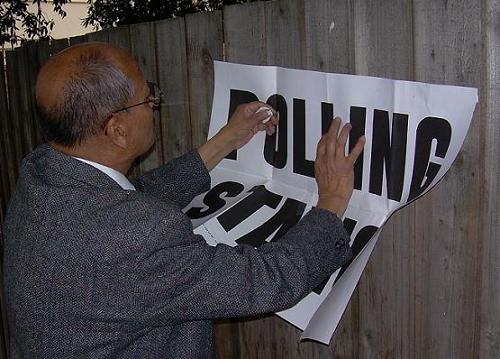Will it be Wobbly April every year?
How possible is coalition government with elections on?
It all seemed so easy last May. Two parties having come together to agree a coalition document over little more than a weekend, leaders joking in the garden of Number Ten and ministers sitting happily around the cabinet table. It looks a different ball game now.
Disagreements between members of the two coalition parties have been more frequent and more public in the last month than at any time so far this parliament. First, the Lib Dem members revolted on the NHS reforms, generating a wave of opposition that fed upwards through the party and ultimately lead to both a pause in the implementation of the policy and an outspoken attack on the plans from Norman Lamb – Nick Clegg’s PPS.
Following on from that, the prime minister himself chose to make a speech on immigration – a touchy subject at the best of times – which didn’t appear to make any concessions to the differing policy preferences of his coalition colleagues.
Inevitably, some Lib Dems went public to distance themselves, Vince Cable being the most senior of them, though that didn’t seem to bother Cameron who reiterated his stance later the same day.
The obvious conclusion is that there is more than an element of electioneering going on, with both parties keen to re-establish independent identities ahead of May 5, and to reconnect with their core vote – something particularly important with both parties on the defensive and down in the polls since last May.
It’s not the only conclusion to be drawn though. The conference vote may have been a wake-up call to Lib Dem ministers who’d had an easy ride from their party up till that point. There’s no doubt that the tuition fees episode badly damaged their party’s reputation and activists at the sharp end will be particularly sensitive to a potential repetition over the NHS reforms.
In other words, it’s more than just electioneering – it’s a genuine shift in how the game is played.
That would also tie in with Cameron’s speech. If Lib Dem ministers have less latitude, the natural reaction from the Conservatives is to publicly start from a more home-ground position themselves in order to reach a compromise in roughly the same area as would have been the case before. After all, the NHS reforms are important to the Tories too, from the other side of the debate, as are other policies such as the immigration cap. Tory activists and MP’s will not wish to see the pause in the NHS programme become a prototype for a general halt.
All that implies a more mature kind of governance than was the case over the previous decade and a reaffirmation of cabinet government. The reaction of all parties to some of the failings of the Major government was to try to avoid splits in public at all costs, including holding proper discussion of policies lest it reveal dissent. For this government, discussion is now unavoidable and if approached positively, should result in more fully thought-out policies whose support is less likely to drain away during their passage through parliament.
Not being scared of ‘splits’ might even end up being a good thing, especially where the public can see a formalisation of a split in two different parties, something which makes the disagreement easier to justify to the media.
The annual Spring elections place an additional tension on the various ties within the coalition and between those in Westminster and members in the country. For as long as the government’s pursuing a deficit reduction agenda – when the parties have a more hostile electorate and are on the defensive – these dynamics will make April a particularly difficult month.
David Herdson
Â

